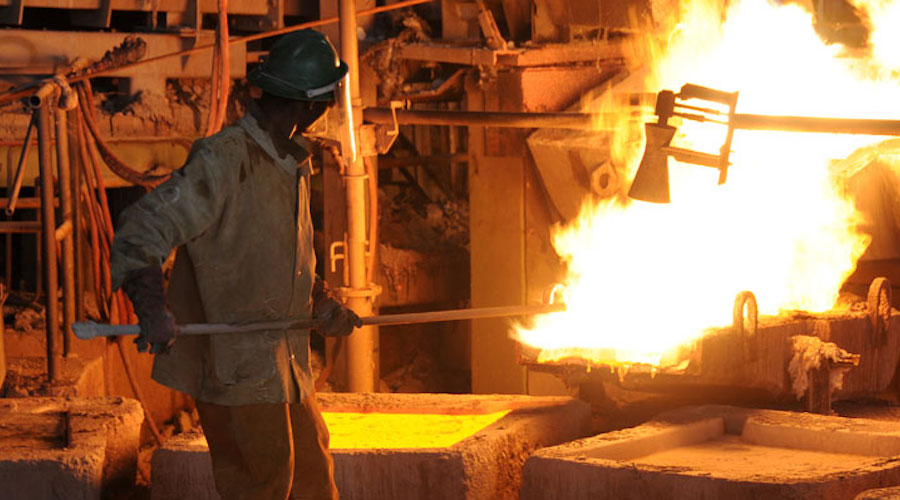Zambia looks to UAE and Saudi Arabia to back copper expansion

Zambia aims to increase copper output to a record above 1 million tons this year, as it deepens ties with oil-rich Gulf nations such as the United Arab Emirates and Saudi Arabia.
Production may climb from about 720,000 tons in 2024, according to Jito Kayumba, special assistant for finance and investment to Zambia’s president.
International Resources Holding RSC Ltd. of Abu Dhabi has already raised output by 32% at the Mopani mine, after winning a bid to buy a majority stake at the end of 2023, Kayumba said in an interview in Riyadh. Now IRH is is targeting production of 150,000 tons for 2025, he added.
IRH didn’t immediately comment.
Kayumba, who’s attending the Future Minerals Forum, said Zambia also expects more deals with Saudi Arabia after this week signing a memorandum of understanding with the kingdom to collaborate on mineral resources.
“The UAE is aggressively pursuing new investments and the MOU with Saudi Arabia tells you how serious the relationship is,” Kayumba said. “They will definitely be in Zambia.”
Kayumba said Gulf investors are critical partners in helping Zambia deliver on its goal of more than quadrupling copper output by the beginning of the next decade. He expects Saudi Arabia to be among the first investors should Zambia’s ongoing mapping study reveal viable development opportunities.
The kingdom has been clinching deals with foreign miners in recent years, including Canada’s Barrick Gold Corp., Vale SA in Brazil and India’s Vedanta Resources Ltd., as it looks to build its own metals and mining hub. Saudi state-backed Manara Minerals Investment Co. is vying for a stake in First Quantum Minerals Ltd.’s Zambian mines, but was outbid by Japanese trading house Mitsui & Co., Bloomberg has previously reported.
Zambia — Africa’s second-biggest copper producer after the Democratic Republic of Congo — has held talks with Manara, state miner Maaden and Saudi Arabia’s Ministry of Industry and Mineral Resources about closer collaboration.
Kayumba doesn’t expect power shortages to curb the country’s ability to boost copper production this year. He pointed to solar plants that are expected to be commissioned before the end of the second quarter and the power supply surplus in neighboring Tanzania.
“There’s a lot of stuff now in place to mitigate the risks around this,” Kayumba said. “Mining will not be hindered.”
(By Christine Burke)
More News
Contract worker dies at Rio Tinto mine in Guinea
Last August, a contract worker died in an incident at the same mine.
February 15, 2026 | 09:20 am
{{ commodity.name }}
{{ post.title }}
{{ post.date }}




Comments